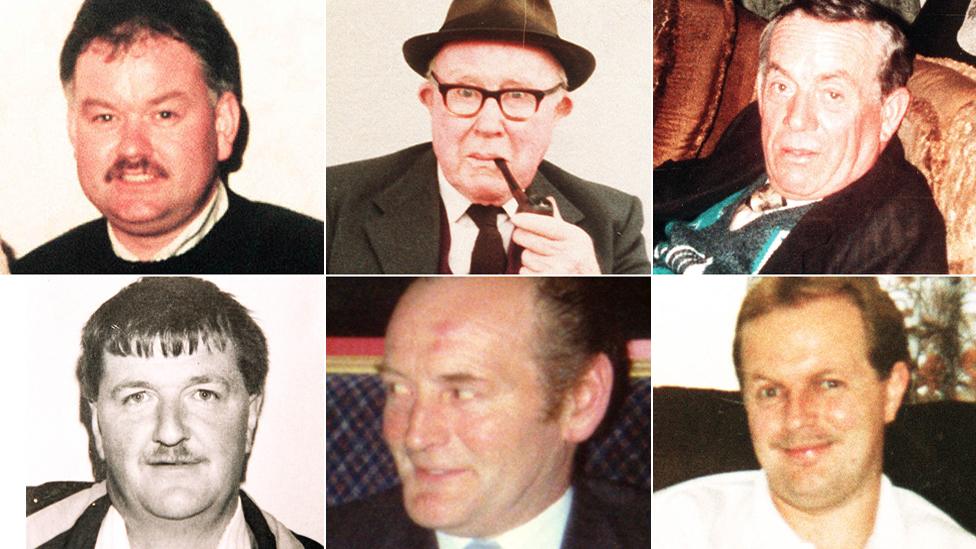Kilcoo: PSNI 'breach' over investigation into UVF attack in pub
- Published
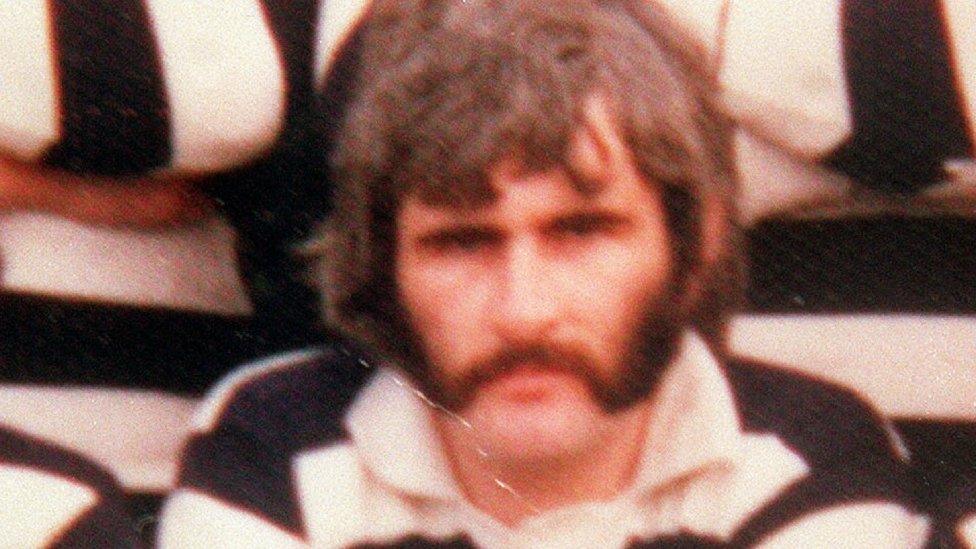
Peter McCormack was shot dead by loyalists at a pub in Kilcoo in 1992. Three others were seriously injured
The police are in breach of a legal duty to carry out an effective inquiry into a fatal gun attack by loyalists on a County Down pub in 1992, the High Court in Belfast has ruled.
A judge said that new material in a watchdog report and a documentary film represented plausible evidence of significant state collusion.
The attack was at the Thierafurth Inn in Kilcoo.
One man was murdered and three others were seriously wounded.
Peter McCormack, 42, was killed after an Ulster Volunteer Force (UVF) gang carried out the shootings during a darts tournament at the pub in November 1992.
The judge said on Friday that the "state has failed to carry out an effective Article Two or Three (of the European Convention on Human Rights) compliant investigation into the attack within a reasonable time".
The verdict came in a legal challenge by a barman who avoided injury in the shooting.
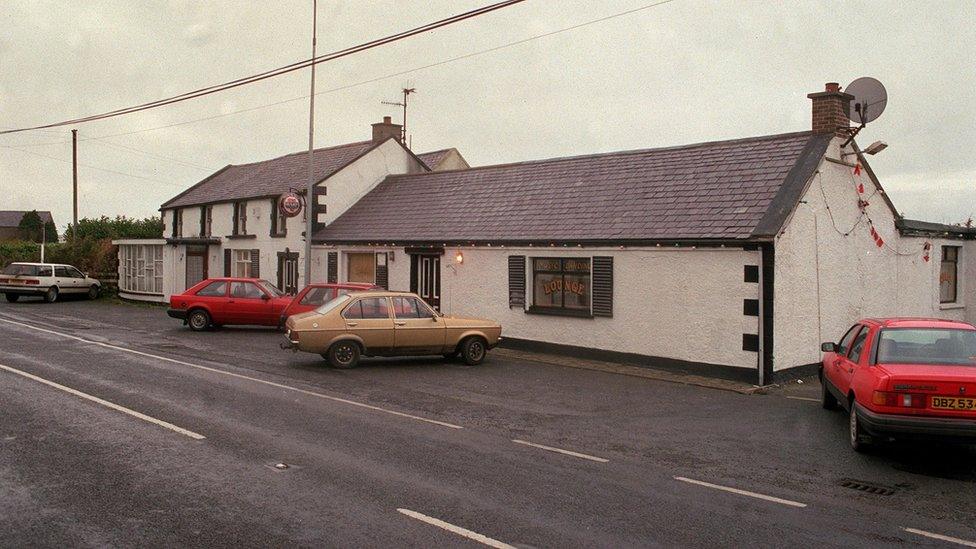
The Thierafurth Inn in Kilcoo, County Down, in 1992 after the fatal UVF gun attack
John McEvoy, who developed post-traumatic stress disorder, brought judicial review proceedings against the Police Service of Northern Ireland (PSNI) chief constable for an alleged failure to ensure an independent, effective investigation.
His challenge was based on information he said pointed to collusion between members of the security forces and the UVF operating in south Down at that time.
It followed the publication in 2016 of a Police Ombudsman report into the Loughinisland killings.
In that attack, UVF gunmen murdered six Catholic men who had been watching the Republic of Ireland in a World Cup football match on television at a village pub in June 1994.
A film on the Loughinisland killings, No Stone Unturned, which named suspects, strengthened the case for an independent investigation, it was argued.
'Unlawful delay'
Even though the PSNI is to re-examine the circumstances surrounding the Thierafurth Inn shootings, a lawyer for Mr McEvoy claimed there would be an unlawful delay lasting for years.
The court heard the attack was 542nd in a queue within the PSNI department due to investigate it and there was no indication of when it would be considered due to limited resources.
Mr McEvoy's lawyer said that suspects were named in the documentary and that one referred to as Person A was identified as being allegedly linked to the Thierafurth Inn attack.
A newspaper article published this year claimed another of those the No Stone Unturned documentary named in connection with the Loughinisland massacre, Person I, was given weapons training by a member of the Army.
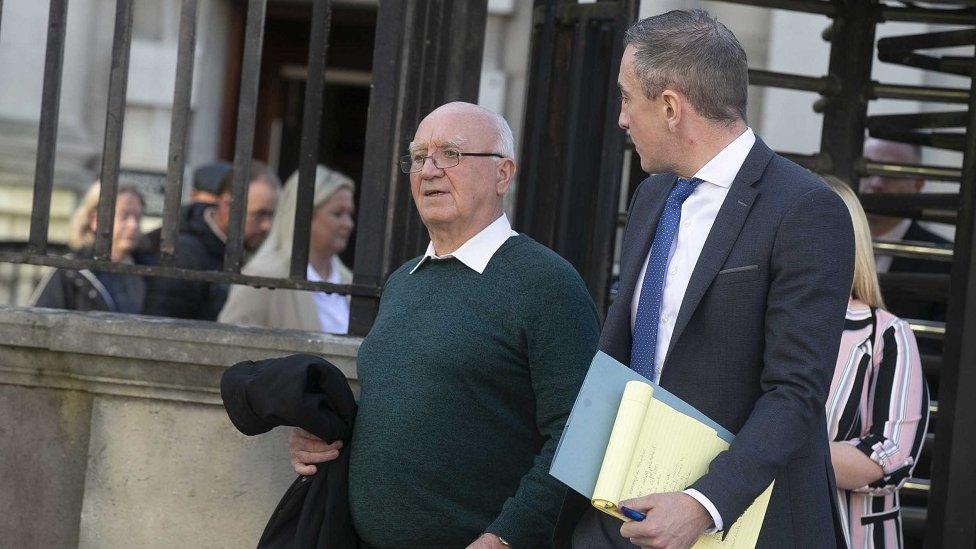
John McAvoy (left) who was injured in in a 1992 UVF gun attack on the Thierafurth Inn, leaves court on Friday
A barrister representing the PSNI said there was only an abstract suggestion of collusive behaviour, which did not bear the hallmarks of other Troubles cases.
Ruling on the challenge, the judge said the new material cast doubt on the ability of the original police investigation to bring those responsible to justice.
"I am satisfied that it is credible, relevant to the identification of perpetrators and capable of undermining previous conclusions," he said.
"It goes beyond merely the addition of detail or the corroboration of what the applicant and others have previously believed since it represents plausible evidence, from authoritative sources, of significant state collusion in the events under consideration."
He said the new material had been in the public domain for up to six years without prompting any action by the state.
"For reasons of public confidence, as well as the individual rights of the applicant and others affected by this atrocity, that cannot be an acceptable state of affairs," he said.
In a statement, the PSNI said: "The Police Service of Northern Ireland acknowledge the comments of Mr Justice Humphreys.
"We will now take time to fully consider the written judgment and it would, therefore, be inappropriate to comment further at this time."
Related topics
- Published29 November 2018
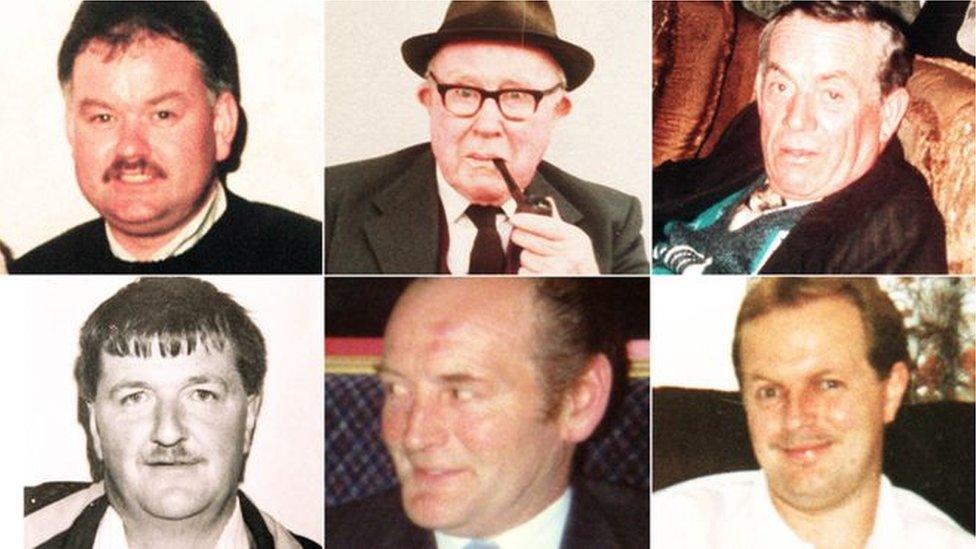
- Published9 June 2016
